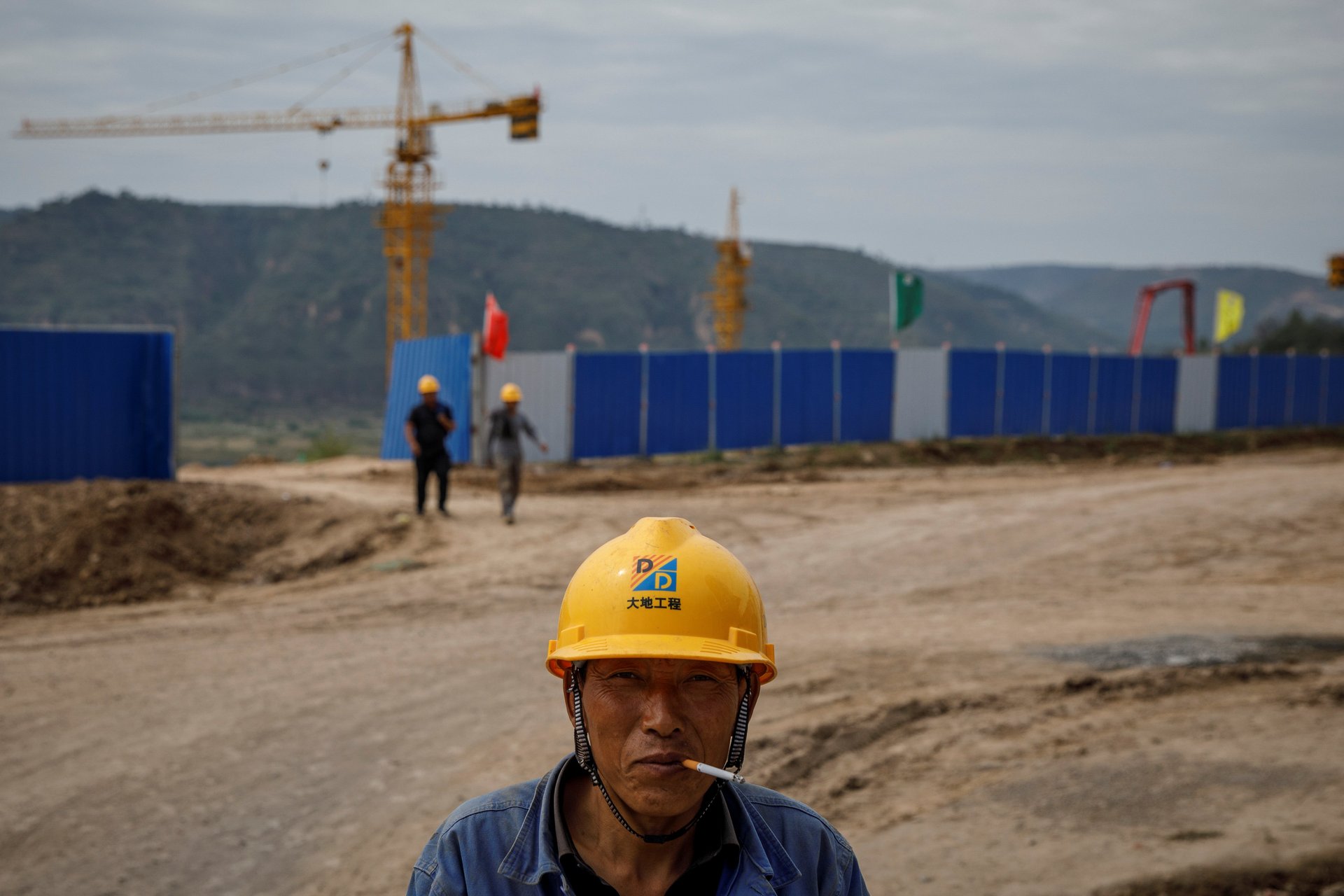Why giant coal mines are part of China’s plan to reduce its dependence on coal
China wants to cut carbon emissions, and has set itself the ambitious goal of being carbon neutral by 2060. To get anywhere close to achieving that task, it will have to sharply curtail its coal consumption, which for decades has made up the bulk of its energy mix.


China wants to cut carbon emissions, and has set itself the ambitious goal of being carbon neutral by 2060. To get anywhere close to achieving that task, it will have to sharply curtail its coal consumption, which for decades has made up the bulk of its energy mix.
Somewhat counter-intuitively, China’s bid to cut coal use will involve large coal mines and coal-fired power plants. The seeming contradiction is a vivid example of China’s need to pull off a delicate and high-stakes balancing act: positioning itself as a leader in the global shift towards renewable energy, while ensuring its own energy security—that is, a safe, affordable, and reliable supply of energy sources needed to power its economy.
The state planner faces “two hard tasks…but they are contradictory,” said Aiqun Yu, China researcher at the US nonprofit Global Energy Monitor. “When the economy is growing fast and energy demand [is high], then growth becomes the first priority. When the pressure from [carbon targets] grows fast, then they turn to the other side.”
Just in recent months, we’ve seen how China has had to juggle immediate energy demands with the longer term goal of weaning itself off coal, set to be a contentious topic of discussion at this year’s climate talks in Glasgow.
Hot summers push up demand for coal
Earlier this month, the state planner announced that it would release more than 10 million metric tons of coal from national reserves to steady market supply and stabilize prices amid surging energy demand during the hot summer months.
Demand has been so high that 11 provinces saw record daily power consumption on July 14, according to the state broadcaster (link in Chinese). In Henan province, which experienced a heatwave followed by the catastrophic floods of last week, local authorities suspended coal production from being sent to other regions.
China’s economic recovery, driving increased industrial production, had also pushed state planners in April to order coal producers to ramp up output. China’s absolute coal consumption is expected to rise this year, even though in relative terms it’s set to reduce coal’s share of its total energy consumption to below 56%.
Restructuring China’s coal industry
All this is to say that China won’t be kicking its coal addiction anytime soon. Beijing knows this. Short of scrapping its entire coal industry overnight—which would almost certainly cause chaotic energy shortages and put many out of a job—it wants to upgrade its coal industry by making it more efficient and less polluting. A large part of that involves getting rid of small coal producers and debt-ridden, loss-making “zombie enterprises.”
The corollary is that China must restructure its coal industry around big players: giant coal mines and power plants. The thinking is that this would give the state more consolidated control over the coal sector, making it easier to implement modern standards and upgrade equipment across the board.
According to the state planner, large “coal-power bases”—designated areas where coal mines and plants are concentrated—now account for 96% of national coal production (link in Chinese). Meanwhile, there are about 1,200 large-scale, modern coal mines nationwide, accounting for 80% of coal production (link in Chinese), according to the bureau of national statistics.
“Chinese coal has long operated on the model of large, medium, and small coal mines developing together, with medium and small mines as the mainstay. Now, it’s changing to large coal mines as the mainstay, and small and medium mines as supplements,” Zhang Xiong, deputy secretary general of China National Coal Association, said in a speech (link in Chinese) in October.
Whether this strategy of consolidating around mega coal bases consisting of giant coal mines and plants will ultimately help China achieve its carbon targets is not a question that Yu, the researcher, can answer definitively right now.
In the short term, she said, the overall consolidation of China’s energy sector makes it easier for Beijing to negotiate climate-related matters on the international stage, since there are fewer domestic stakeholders to deal with, and any changes can be implemented in a centralized manner. But in the long run, she added, if Beijing one day feels that its climate pledges are no longer politically helpful, then it can shift away from its emissions targets just as quickly—to the detriment of the planet.